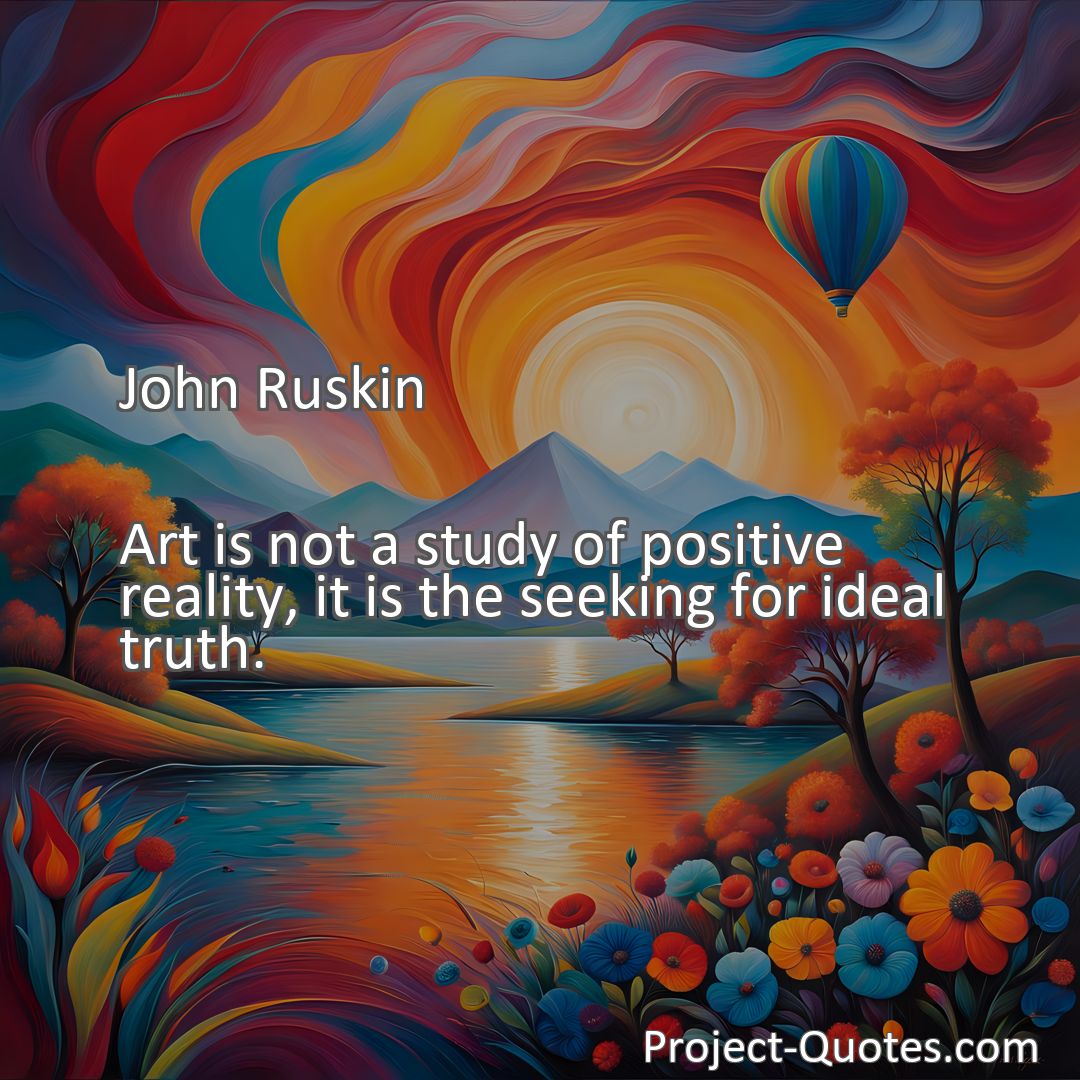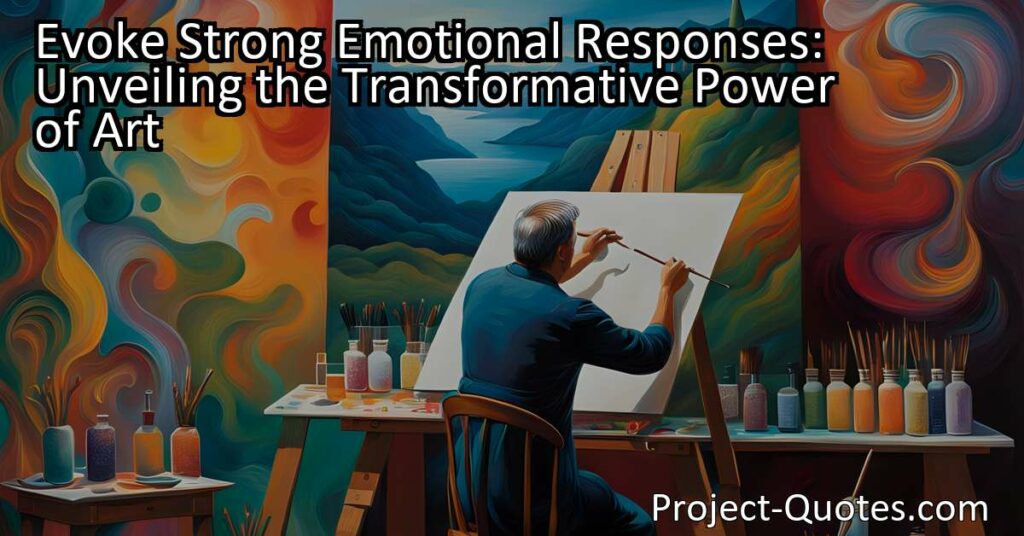Art is not a study of positive reality, it is the seeking for ideal truth.
John Ruskin
Evoke Strong Emotional Responses: Unveiling the Transformative Power of Art Art has the incredible ability to evoke strong emotional responses within us, taking us beyond the surface of our everyday reality. Through their creations, artists communicate thoughts, emotions, and perceptions, inviting us to question, reflect, and connect with the world in a profound way. By tapping into our consciousness, art serves as a catalyst for personal growth, introspection, and the exploration of ideal truths.
Table of Contents
Meaning of Quote – Art is not a study of positive reality, it is the seeking for ideal truth.
Art has long been a source of inspiration, wonder, and contemplation for mankind. From ancient cave paintings to towering sculptures, the creative expression of artists has transcended time and culture. But what is the true purpose of art? According to the words of John Ruskin, a prominent 19th-century art critic, art is not merely a study of positive reality, but rather a pursuit of ideal truth.
When we think of reality, we often associate it with what we can perceive with our senses: what we see, hear, touch, taste, and smell. It encompasses the tangible world around us, the things we can easily comprehend and explain. However, Ruskin argues that art goes beyond the confines of the physical realm, delving into something deeper and more profound.
In its essence, art is a form of communication, a language through which artists express their thoughts, emotions, and perceptions. It allows them to transcend the limitations of pure reality and delve into the realm of the abstract, where concepts and ideas take shape. By doing so, artists can tap into the universal truths that underlie our existence, giving voice to a collective human experience that extends far beyond the here and now.
Artists strive to capture the essence of their subjects, be it the beauty of a landscape, the complexity of human emotions, or the intricacies of a historical event. They do not simply reproduce what is seen on the surface, but instead seek to uncover deeper meanings and connections. Through their creations, artists invite us to question, reflect, and connect with the world around us in a way that we may not have previously considered.
The pursuit of ideal truth, as described by Ruskin, implies that art is a journey rather than a destination. It is an ongoing exploration, in which artists continually strive to create works that capture the essence of their subject matter. It is the pursuit of a higher understanding, a desire to uncover the underlying truths that shape our existence.
In this sense, art becomes a bridge between the physical and the spiritual, the real and the ideal. It allows us to transcend the limitations of our physical reality and engage with something greater than ourselves. Through art, we can tap into the depths of our own consciousness, unlocking emotions, memories, and desires that may have otherwise remained dormant.
Art has the power to evoke strong emotional responses within us, causing us to question, reflect, and even challenge our own beliefs. It serves as a catalyst for introspection and personal growth, inviting us to examine our own lives and the world around us with fresh perspective. By presenting us with alternative viewpoints and interpretations, art allows us to broaden our horizons and consider new possibilities.
Furthermore, art has the ability to shape and influence society as a whole. Throughout history, artists have used their craft to challenge the status quo, to advocate for social change, and to shed light on the injustices of the world. By presenting their own visions of truth, artists can inspire others to question the norms and values of their time, fostering a sense of empathy, understanding, and unity.
Art also offers an escape from the mundane and the ordinary. It enables us to transcend the limitations of our everyday lives, transporting us to realms of imagination, beauty, and wonder. Through their creations, artists have the power to transport us to different times and places, to evoke emotions and sensations that go beyond the tangible.
In a world saturated with fast-paced technology and instant gratification, art serves as a reminder of the importance of slowing down, of taking the time to appreciate the beauty and intricacy that surround us. It invites us to disconnect from our screens, to immerse ourselves in the present moment, and to engage with the world in a meaningful and profound way.
The pursuit of ideal truth, as articulated by John Ruskin, encourages us to embrace the transformative power of art. It reminds us that there is more to life than what meets the eye, that our existence goes beyond the boundaries of our physical reality. Through their creative expressions, artists unlock hidden dimensions, inviting us to explore, to question, and to never cease in our pursuit of understanding.
So, the next time you find yourself admiring a piece of artwork, take a moment to consider the thoughts and emotions that it evokes within you. Allow yourself to be transported to a different realm, to immerse yourself in the world of the artist’s creation. Embrace the potential for growth and enlightenment that art offers, and never stop seeking the ideal truths that lie beneath the surface of our everyday reality.
I hope this quote inspired image brings you hope and peace. Share it with someone who needs it today!


